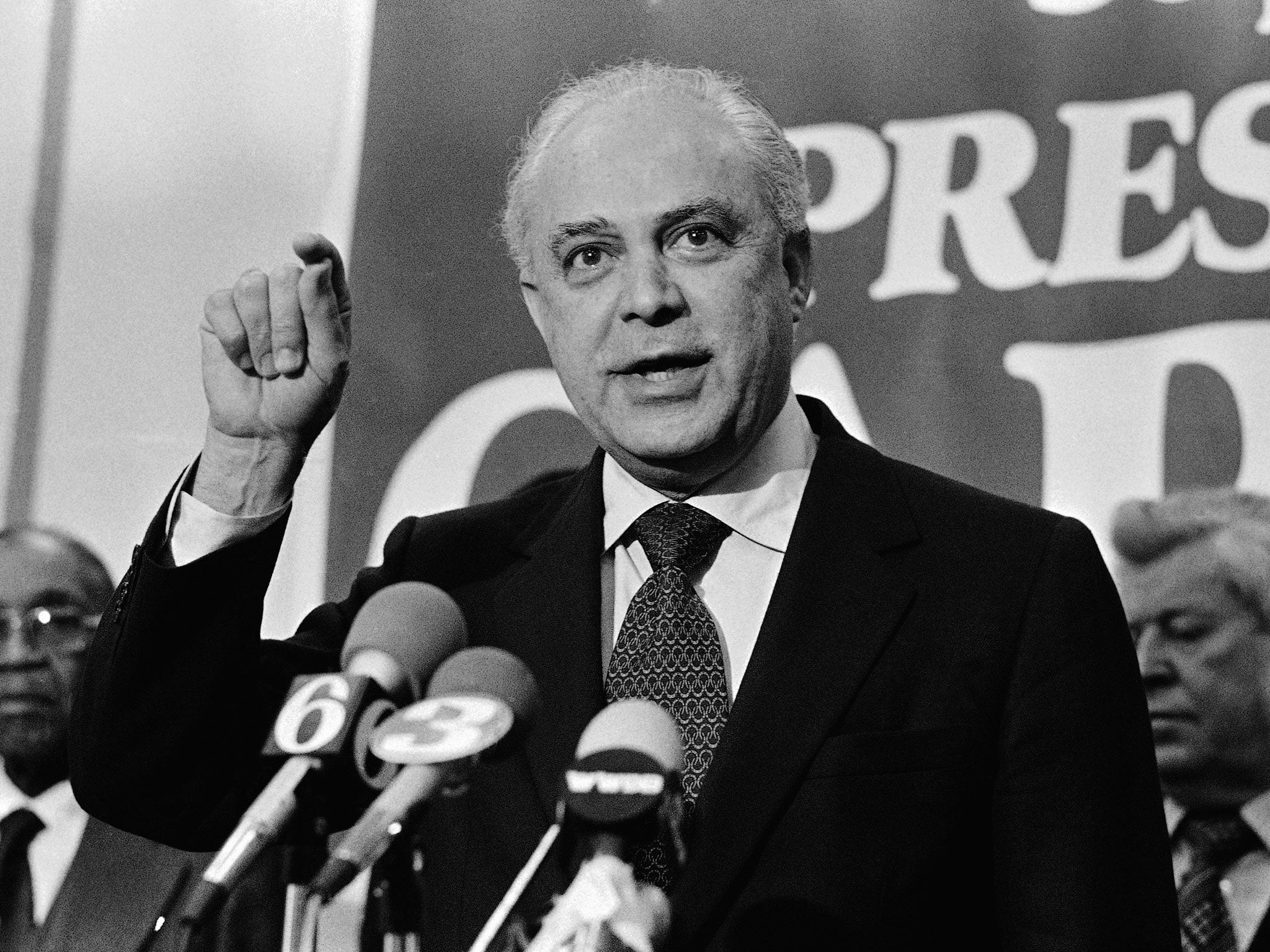Robert Strauss: Lawyer who as a political fixer enjoyed decades of behind-the-scenes power in Washington’s inner circles

Robert Strauss was an especially colourful member of an almost defunct Washington breed, once represented by the likes of Clark Clifford, Ron Brown and Lloyd Cutler: a fixer who moved amid the capital’s interlocking worlds of blue riband law firms, high-powered lobbying operations and government service.
Of this breed, none was as showy as Strauss and none so easily crossed party lines. He was a Democrat who avidly courted big business. He held key posts under Jimmy Carter – and then, more than a decade later, was named by a Republican President, George HW Bush, to the vital job of ambassador in Moscow in the dying days of the Soviet Union.
Such versatility can be traced to the backslapping, rough-and-tumble world of Texas politics in which Strauss cut his teeth, where personality counted for everything, and where Democrats and Republicans scarcely differed. It was a world that he never really left in spirit, despite all his Washington celebrity.
Strauss grew up in the small central Texas town of Stamford, before earning his law degree at the University of Texas and serving as a special agent in the FBI during the Second World War. Even earlier, however, he had tasted Texas politics, working on the first campaign of the future President Lyndon Johnson in 1937. It was there that he acquired his lifelong passions for poker and hot chili; there he honed his prodigious skills as a fundraiser; and there he founded, with a friend, the law firm that grew into the global colossus of Akin, Gump, Strauss, Hauer & Feld.
By the late 1960s Strauss had transferred his wheeler-dealing skills from Dallas to Washington, and quickly became a pillar of the city’s Democratic establishment and a fixture of its social scene. He was a regular patron of Duke Zeibert’s, the legendary power restaurant (sadly no more) where he dispensed bonhomie, consumed hefty steaks, clinched business deals and networked indefatigably.
There was serious political business, too. After Richard Nixon’s demolition of George McGovern in the 1972 presidential election, Strauss was named chairman of the Democratic National Committee, and was crucial in uniting the party around Jimmy Carter, who, four years later, captured the White House. His reward was a post in Carter’s cabinet between 1977 and 1979 as the US Trade Representative, in which role he contributed to the successful conclusion of the Tokyo Round before becoming the President’s representative at the Middle East peace negotiations, invigorated by the Camp David agreements between Israel and Egypt.
The Republican takeover of Washington only temporarily blunted his influence. By 1986, Ronald Reagan was floundering amid the Iran-Contra affair. Strauss the fixer was quietly asked for his thoughts by the White House. He urged Reagan to dump his unpopular chief of staff, Donald Regan, and suggested Howard Baker, the much respected Republican senator from Tennessee, as a replacement. Reagan was annoyed by the advice. But he took it, and his Presidency acquired a new lease of life.
Five years later a summons came from another Republican President, as George HW Bush bypassed a host of career Soviet specialists at the State Department to name him US ambassador to Moscow. Strauss held the job until December 1992, by which time the Soviet Union was no more, replaced by the Russian Federation.
On his return to Washington, Strauss quickly picked up where he had left off, as deal-maker and fixer. Unlike most super-lobbyists he never billed by the hour but took a flat fee for his services. Among the deals he brokered was the 1990 merger between the Japanese electronics group Matsushita and the Hollywood conglomerate MCA, for which he was paid a cool $8m.
But what most set Strauss apart from Washington’s more conventional powerbrokers was an engaging shamelessness. He openly exulted in his role as middleman and problem-solver. “I’m like a drug addict,” he once said. “I need all this attention. It’s not so much the narcotic of applause. It’s the narcotic of power.” Or as a friend put it, “there’s no better person to spot BS than Bob, because there’s a little BS in Bob which people acknowledge and like.” A detractor made the same point in less flattering words: “Bob Strauss is 99 per cent hot air.”
Most certainly, he was a man of few political convictions. For Strauss, charm and persuasion trumped ideology every time. He was never happier than when at the Gridiron dinner, the annual parade ground for Washington’s real insiders. At the 1991 event, when Bush seemed certain of re-election and Bill Clinton was barely a gleam in a pundit’s eye, his old sparring partner and fellow Texan Jim Baker, Bush’s Secretary of State, joked that the Democratic field was so weak that Strauss himself would have a chance. “Of course,” Baker quipped, “you’d have to become a Democrat first.”
Late in life, Strauss’s reputation was tarnished by his association with Conrad Black’s Hollinger company, when he was one of a group of independent directors who were involved in the settlement of a $50m negligence claim by a creditor. But that was a relatively minor blemish for a Texas boy who had travelled a very long way. “I started out with dirty little nothin’ in Texas,” he once remarked, “and now I sit around my pool with a tall drink and I say to myself, ‘Strauss, you’re one rich sonuvabitch’.”
Robert Schwarz Strauss, lawyer, politician and diplomat: born Lockhart, Texas 19 September 1918; married 1941 Helen Jacobs (died 2006; two sons, one daughter); Democratic Party chairman 1972-77; US Trade representative 1977-79; Ambassador to the Soviet Union, then the Russian Federation 1991-92; died Washington DC 19 March 2014.
Subscribe to Independent Premium to bookmark this article
Want to bookmark your favourite articles and stories to read or reference later? Start your Independent Premium subscription today.

Join our commenting forum
Join thought-provoking conversations, follow other Independent readers and see their replies